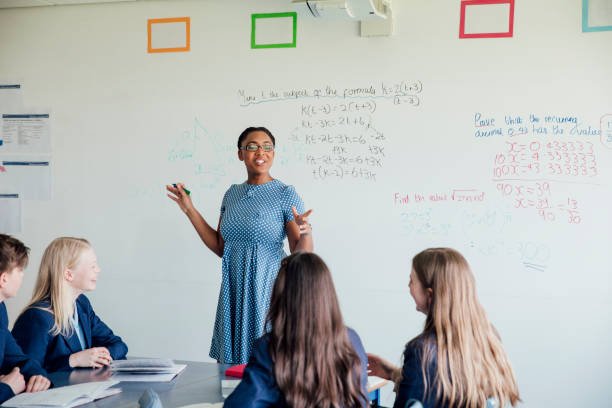The role of an educator extends beyond delivering academic content; it involves shaping the socialization and intercultural interactions among students. Educators are influential in helping students understand and appreciate diverse cultures, promoting inclusive learning environments (EdWeek, 2014). This responsibility becomes increasingly vital as societies become more multicultural, necessitating an appreciation for intercultural understanding (MDPI, 2020). This article analyses the tasks of the educator in creating an environment conducive for socialization and intercultural interaction, crucial for understanding culture.
Tasks of the Educator in Creating an Environment for Socialisation and Intercultural Interaction in Understanding Culture
Educator’s Role in Socialization
Socialization is the process through which individuals learn and internalize the norms and ideologies of their society (LibreTexts, n.d.). In an educational setting, the teacher plays a critical role in this process. They shape the social behavior and attitudes of students, guiding their interaction with others and the environment. This involves teaching them the cultural norms, values, and expectations within the learning environment (ScienceDirect, 2015). The teacher also instills in students the ability to interact amicably with others, enhancing cooperation and collaborative learning.
Promoting Intercultural Interaction
Educators have a crucial role in promoting intercultural interaction within classrooms. According to research, this interaction is a significant factor in developing cultural awareness and understanding among students (MDPI, 2020). To accomplish this, teachers need to foster an environment that values diversity and encourages dialogue. This involves introducing teaching materials and activities that reflect different cultures and perspectives (Frontiers in Education, 2017). Encouraging students to share their cultural experiences also enhances cultural appreciation and understanding (OpenEdition Journals, n.d.).
Understanding Culture
Understanding culture is a complex process that involves recognizing and appreciating the diversity of beliefs, customs, and values of different groups. In this context, teachers are central in shaping students’ cultural understanding. They do this by exposing students to various cultural narratives and experiences, helping them understand cultural similarities and differences. This exposure often helps in challenging stereotypes and reducing prejudice (LibreTexts, n.d.).
Teacher Training in Intercultural Understanding
For educators to effectively execute these tasks, they require training in intercultural understanding. Such training enhances their ability to foster a diverse and inclusive learning environment (ResearchGate, n.d.). This involves understanding the dynamics of intercultural dialogue, teaching strategies that promote cultural awareness, and ways of addressing cultural biases in teaching.
Conclusion
Educators have a fundamental role in shaping the socialization and intercultural interactions of students. Through fostering an inclusive learning environment and promoting cultural awareness and understanding, they play a significant part in preparing students for a multicultural world.
References
EdWeek. (2014). 6 Ways Teachers Can Foster Cultural Awareness in the Classroom. Retrieved from: https://www.edweek.org/teaching-learning/opinion-6-ways-teachers-can-foster-cultural-awareness-in-the-classroom/2014/11
Frontiers in Education. (2017). Intercultural Education: An Approach to Prepare Teachers for Diversity. Retrieved from: https://www.frontiersin.org/articles/10.3389/feduc.2017.00031/full
LibreTexts. (n.d.). Socialization and Culture. Retrieved from: https://socialsci.libretexts.org/Bookshelves/Ethnic_Studies/Race_and_Ethnic_Relations_in_the_U.S.%3A_An_Intersectional_Approach/04%3A_Prejudice_Discrimination_and_Racism/4.01%3A_Socialization_and_Culture
MDPI. (2020). Teachers’ Training in the Intercultural Dialogue and Understanding. Retrieved from: https://www.mdpi.com/2071-1050/12/23/9934
OpenEdition Journals. (n.d.). The role of teachers in intercultural education. Retrieved from: https://journals.openedition.org/apliut/5746?lang=en
ResearchGate. (n.d.). Teachers’ Training in the Intercultural Dialogue and Understanding: Focusing on the Education for a Sustainable Development. Retrieved from: https://www.researchgate.net/publication/347212505_Teachers’_Training_in_the_Intercultural_Dialogue_and_Understanding_Focusing_on_the_Education_for_a_Sustainable_Development
ScienceDirect. (2015). Socialization in childhood and adolescence. Retrieved from: https://www.sciencedirect.com/science/article/pii/S1877042815014135/pdf?md5=1012ea3968a1b227612f4327461e604f&pid=1-s2.0-S1877042815014135-main.pdf




